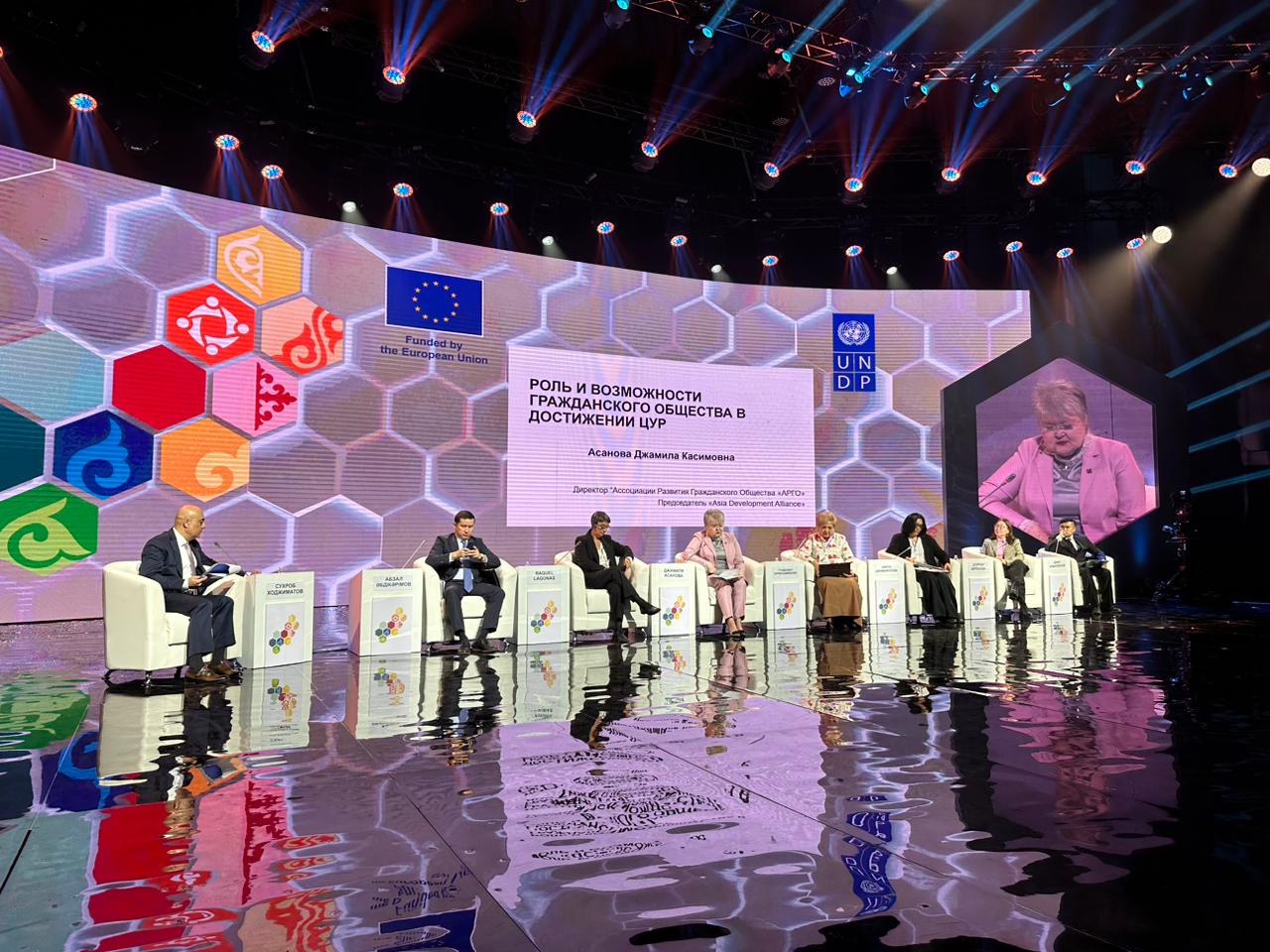ASTANA – Kazakhstan’s civil community discussed key initiatives to advance the country’s progress towards its Sustainable Development Goals (SDGs) at the 11th Civil Forum in Astana on Oct. 18.

The 11th Civil Forum started with Building regional partnerships with civil society to accelerate the achievement of SDGs in Central Asia panel session. Photo credit: The Astana Times.
The forum, which is the largest civil dialogue platform in the country, gathered over 600 delegates from non-governmental organizations (NGOs), chairpersons of public councils, members of the Parliament, representatives of government agencies, and the business sector.
The inaugural Civil Forum took place in 2003 when Kazakhstan had fewer than 500 NGOs. Now, that number has soared to over 23,000.
In addition to the central event, regional forums were organized in 20 regions of the country.
“Nearly all forums were attended by regional akims (governors), a testament to the seamless partnership and unity between the state and society,” said Banu Nurgazieva, President of the Civil Alliance of Kazakhstan.
She added that the recommendations collected previously form the foundation of an expansive document. Insights from the current forum will further enrich it.
Vice Minister of National Economy Abzal Abdikarimov joined a panel session titled Building Regional Partnerships with Civil Society to Accelerate the Achievement of SDGs in Central Asia.
He highlighted the role of civil society in preparing two Voluntary National Reviews (VNR) on the implementation of the SDGs at the United Nations High-Level Political Forum on Sustainable Development in 2019 and 2022.
“Civil society was actively involved in the development of this review. Substantial work has been allocated to them, especially in regard to raising public awareness of the SDGs. We have received a vast array of feedback and comments from the public through this work,” he said.
Raquel Lagunas, United Nations Development Programme (UNDP) Global Director of Gender Equality, focused on how NGOs can contribute to gender equality and the empowerment of women in Kazakhstan.
Lagunas said she believes that Kazakhstan can rely on civil society to bring change in gender equality.
“In order to be a truly democratic society, every single organization should integrate gender equality into their vision and mission,” she said.
“When we talk about gender equality, all organizations are of tremendous importance. Why? Because you are the ones that connect to communities. You are the ones reaching the most marginalized women across the country,” said Lagunas.
She also highlighted Kazakhstan’s efforts in supporting civil society and NGOs.
“Since 2018, more than 100 laws have been proposed to restrict the funding and registration of civil society organizations. This underscores why countries like Kazakhstan, which continue to host these NGO forums, are pivotal. It is so important that you keep doing this because we should not take it for granted,” said Lagunas.
According to Jamila Asanova, executive director of the Civil Society Development Association (ARGO), the role of civil society in the implementation of the SDGs is to conduct research, execute information and analytical activities, implement projects at the local level, and promote the interests of the target groups.
“In 2022, ARGO conducted a study to assess the implementation of the SDGs from the perspective of civil society in Kazakhstan,” said Asanova.
“Based on the survey, the three [SDG] goals with the highest progress and scores above 40% were identified. They include eradicating hunger, good health and wellbeing, and partnership for sustainable development. The three SDG goals with the lowest scores (below 30%) are related to reducing inequality, promoting sustainable cities and human settlements, and advancing peace, justice, and effective institutions,” she explained.
Looking ahead, Asanova emphasized the importance of the Kazakh civil society recognizing its mandate and dedication to the SDGs, engaging in dialogue with the government, strengthening innovation, creating think tanks, and developing links with the civil society in Central Asia.
